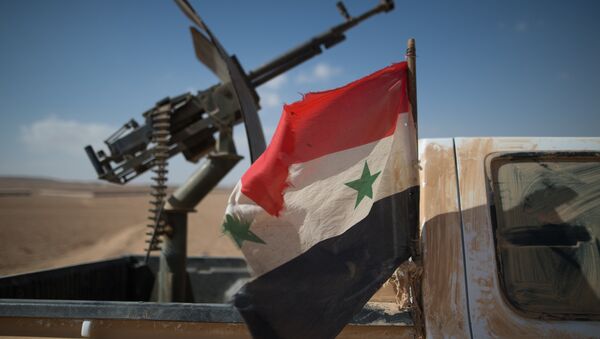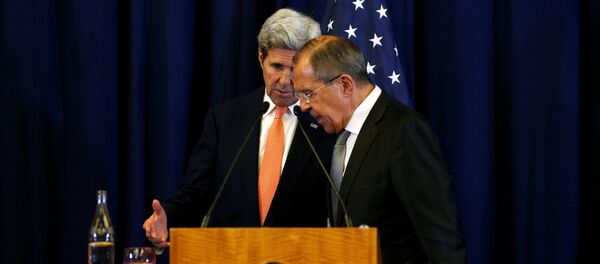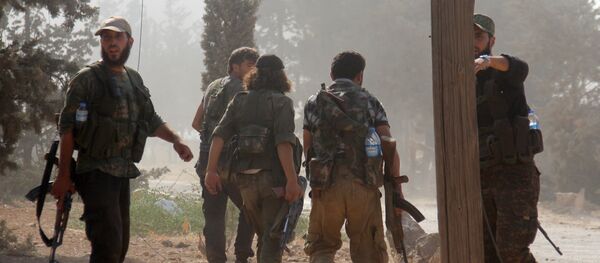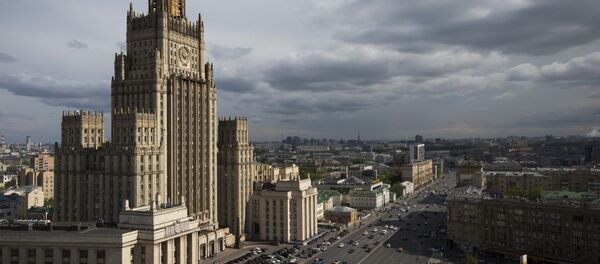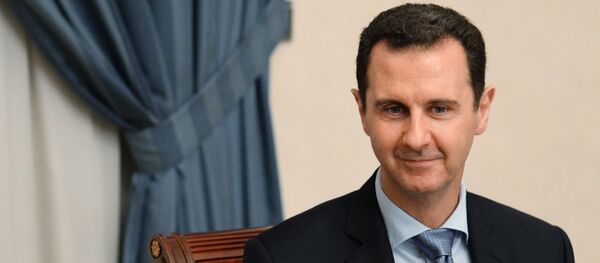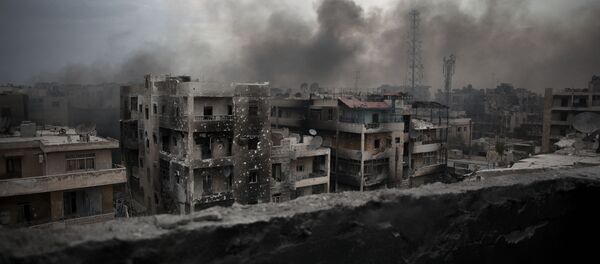Over the weekend, Russian Foreign Minister Sergei Lavrov and US Secretary of State John Kerry announced that they had reached an agreement on a new plan aimed at quelling the violence in Syria, including a nationwide ceasefire which officially came into force at 16:00 GMT on Monday.
Meanwhile, even before the ceasefire stepped into force, some American and Russian experts rushed to suggest that the ceasefire has little hope of lasting. Last week, before the ceasefire deal was announced, the Washington Post published an article explaining that as Daesh's self-proclaimed 'caliphate' continues to collapse, the risk of a wider war breaking out between the multiple regional and global powers involved in the conflict grows
The newspaper's ideas on what could come next in Syria included several chilling scenarios, from Kurdish-Arab proxy wars involving Ankara, to Turkish-Kurdish, Turkish-Syrian, Syrian-US, or even a broader Sunni/Shiite war that might spread across the region.
Pondering the chances of these dangerous scenarios becoming a reality and pulling Syria into endless war, independent online newspaper Svobodnaya Pressa turned to geopolitics experts Stanislav Tarasov and Alexei Fenenko and asked their view on the prospects of peace returning to the war-torn country.
Tarasov, the director of the Middle East – Caucasus Research Center, said that he felt the scenarios listed by the Washington Post were all a real and dangerous possibility, and that the fragmented and multilayered nature of the conflict means that there are actually several dozen different conflicts that could flare up in the region, not just the ten listed by the US newspaper.
Recalling that many details about the five-part agreement remain unknown, Tarasov explained that the deal includes small steps to a ceasefire, in 48 hour increments, along with a delineation of 'moderate opposition' forces from terrorists; the latter will require the creation of the Russian-American Joint Executive Center, "composed of the military and intelligence services of the two countries. The delineation is [also] meant to prevent the bombing of areas where there are civilians, and [eventually,] to lead to coordination between the Russian and US military forces operating in Syria."
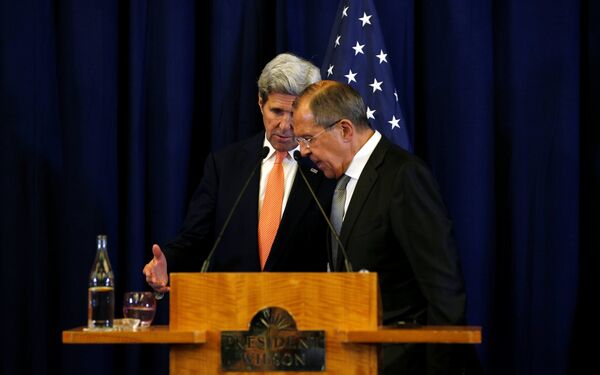
Given the failure of previous efforts to reach peace in Syria, including the numerous Geneva talks involving the Syrian government, opposition, the US, Turkey, Saudi Arabia and Russia, Tarasov suggested that the bilateral agreement between Moscow and Washington "makes sense only in one case: if Russia and the US are able to set apart spheres of influence, and to work together across the country."
Today, the analyst noted, together with Russia and the US, Turkey and Iran, "plus a scattering of radical and non-radical non-state actors," are directly involved in the Syrian conflict.
Turkish authorities, the expert noted, "are already trying to play an independent game, carrying out separate negotiations with Washington about storming Raqqa, while clashing with the Syrian Kurds, who are supported by the Americans. Against this background we can see the activation of the PKK [Kurdistan Workers' Party] factor. It's no accident that there are terror attacks occurring in Turkey almost every day…All this only further works to tangle the knot of contradictions around Syria."
In any case, the Tarasov noted that another factor which complicates any predictions about how the situation will develop next is the US's November elections. "Barack Obama has very little time left before he leaves office. And no matter who enters the White House in November – Democrat Hillary Clinton or Republican Donald Trump – the new administration will need time to develop a new Syria policy and to form a new state apparatus. As practice shows, this restructuring usually takes seven or eight months," i.e. into mid-2017.
"And this means that the agreement between Lavrov and Kerry can either be blocked by the new administration, or substantially transformed in several areas."
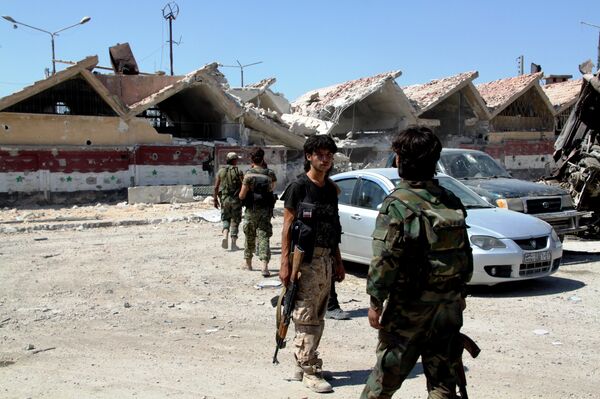
As far as the parties to the conflict go, each of them will 'demand a place under the sun' during peace negotiations. For now, Tarasov noted, almost all of them can at least formally agree on the need to preserve the Syria's territorial integrity. In this situation, "some signs suggest that visions of a confederated Syria are being considered."
"The problem, however, is that Ankara is not satisfied by the idea of a confederation. Turkey fears the emergence of an autonomous [Kurdish] enclave in Syria, according to the model of the de-facto independent Kurdish enclave in Iraq. Turkey considers that the Syrian and Iraqi Kurds will strengthen separatist Turkish Kurdish sentiments, thereby destabilizing the country."
In any case, "for now, we are witnessing this diplomatic waltz between Lavrov and Kerry. It's true that they have experience of effective joint action – for example, when Russia and the US solved the problem of Syria's chemical weapons arsenal. But whether the two countries' foreign ministers will be able to repeat that success in the current situation remains an open question."
For his part, Alexei Fenenko, a senior researcher at the Institute of International Security Problems, explained that he too sees the Kurdish question as the key to the success or failure of the current ceasefire. There are three main possible scenarios as far as Turkey's involvement is concerned, he said.
"The second scenario is to turn Syria into a confederation. But this decision would automatically mean war with Turkey. Ankara would never voluntarily allow an autonomous Rojava on their border without war." And finally, the last option, according to Fenenko, "is to somehow come to an agreement with the Kurds in a way that does not irk Ankara." That option, for obvious reasons, would be the most difficult to achieve. But anything else, including the creation of a state of Kurdistan involving Syrian and Iraqi Kurds, would mean war with Turkey.

